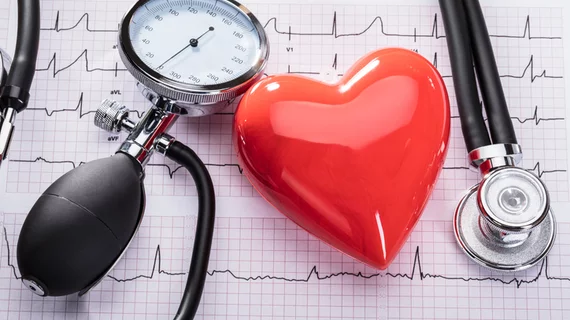High blood pressure more than doubles risk of COVID-19 hospitalization
A new study in Hypertension reveals strong links between high blood pressure and hospitalization for severe COVID-19, even for fully vaccinated and boosted adults.[1]
The study examined medical records for 912 adults in Los Angeles during a surge of the Omicron variant, from December 2021 to April 2022, to better understand the phenomenon of vaccinated individuals getting acutely sick. Those with high blood pressure were 2.6 times more likely to require hospitalization.
Out of 146 patients in the study who had to be hospitalized for COVID-related symptoms, 125 of them—86.2%—had high blood pressure.
“These findings are important since about half of the adults in the U.S. have high blood pressure,” lead author Joseph E. Ebinger, MD, MS, an assistant professor of cardiology and director of clinical analytics of the Smidt Heart Institute at the Cedars-Sinai Medical Center in Los Angeles, said in a statement about the study.
Other risk associations for hospitalization included older age, chronic kidney disease previous heart attack, heart failure, and a longer amount of time between the last vaccination and COVID-19 infection. While there was some overlap between people with high blood pressure and one or more of the additional factors, the increased risk was significant even when no other risk factors were present.
In contrast with earlier variants of COVID, the study also found that obesity and diabetes were not as strongly associated with hospitalization risk for patients infected with the Omicron variant.
“Our data found that it is not just older adults with other underlying health conditions who are vulnerable,” Ebinger said. “Breakthrough Omicron infection severe enough to cause hospitalization can happen to an adult of any age, especially if a person has high blood pressure, even if they have no other major chronic disease. The people who are most at risk are not necessarily who we think they are. They are not the sickest of the sick, and this was a surprising finding.”
The findings help people with high blood pressure understand that they may be high risk, helping them make informed decisions and raise any concerns with a doctor.
“We need to raise awareness and understanding that receiving three doses of a vaccine may not prevent severe COVID-19 in everyone, especially among people with high blood pressure. We also need more research to understand why there is this link between high blood pressure and an excess risk for more severe COVID-19 illness,” Ebinger said.
